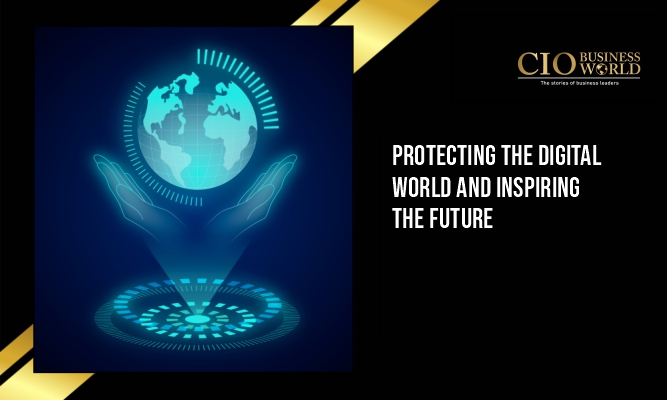In our increasingly connected world, cybersecurity leaders are the silent guardians who keep our data, businesses, and personal lives safe. They may not always make headlines, but their work is the backbone of our online safety. These leaders are more than just technical experts — they are visionaries, problem-solvers, and teachers, shaping the way we protect and trust the digital world.
Why Cybersecurity Leadership Matters
Technology has transformed the way we live, work, and connect. From online banking to healthcare systems, critical parts of our lives now depend on digital networks. This convenience comes with a growing challenge: cyber threats are evolving faster than ever. Every day, cybercriminals attempt to exploit weaknesses in systems, targeting individuals, organizations, and even governments.
Here’s where cybersecurity leaders step in. Their role goes beyond installing firewalls or updating passwords. They are responsible for building strategies, anticipating future risks, and leading teams that safeguard digital assets. Without their foresight and leadership, our digital infrastructure would be far more vulnerable.
Qualities of a Great Cybersecurity Leader
The best cybersecurity leaders share a unique blend of technical skills, vision, and emotional intelligence. Some of their key qualities include:
- Strategic Thinking – Cybersecurity leaders must see the big picture. They balance immediate threats with long-term planning, ensuring security measures are future-proof.
- Adaptability – Threats change daily. Leaders must stay ahead by embracing innovation, adopting new technologies, and staying informed about global cyber trends.
- Communication Skills – It’s not enough to understand cybersecurity; leaders must explain it in clear, relatable terms to stakeholders, employees, and the public.
- Team Empowerment – A leader’s greatest strength lies in their team. Successful leaders inspire, train, and support cybersecurity professionals to excel in their roles.
- Ethical Integrity – Cybersecurity is built on trust. Leaders must uphold the highest ethical standards to ensure their work protects rather than harms.
The Evolving Role of Cybersecurity Leaders
In the past, cybersecurity leadership was mainly about reacting to breaches. Today, the role is much broader. Leaders are now involved in risk management, regulatory compliance, data privacy, and even corporate reputation. They collaborate with executives, government agencies, and technology partners to ensure security is a shared responsibility
For example, many cybersecurity leaders work closely with CEOs and boards of directors, explaining not just how to prevent cyberattacks, but also how to respond effectively if one occurs. They also guide investments in advanced technologies like artificial intelligence, zero-trust architectures, and cloud security solutions.
Building a Culture of Security
One of the most important contributions cybersecurity leaders make is fostering a culture of security within organizations. Technology alone cannot stop cyber threats — people play a huge role. Leaders encourage employees to follow best practices, such as using strong passwords, being alert to phishing attempts, and reporting suspicious activity.
This culture of awareness extends beyond companies to communities. Many cybersecurity leaders participate in public education campaigns, school programs, and nonprofit initiatives, teaching everyday people how to stay safe online. By doing so, they help close the gap between technical experts and the wider public.
Challenges Cybersecurity Leaders Face
Even with their skills and dedication, cybersecurity leaders face significant challenges:
- Rapidly Changing Threat Landscape – Cybercriminals are constantly adapting, making it difficult to predict and prevent every attack.
- Talent Shortage – The demand for skilled cybersecurity professionals far exceeds supply, putting pressure on leaders to recruit and retain talent.
- Balancing Security and Usability – Security measures must be strong but not so restrictive that they slow down business operations.
- Global Complexity – Cybersecurity often involves navigating different laws, regulations, and threat actors across multiple countries.
Overcoming these challenges requires resilience, creativity, and continuous learning — qualities that the best cybersecurity leaders embody.
Inspiring the Next Generation
Cybersecurity leadership is not just about solving today’s problems — it’s about preparing for the future. Leaders mentor young professionals, encourage diversity in the industry, and advocate for more cybersecurity education. This work is essential because the field needs fresh ideas and new perspectives to stay ahead of threats.
By sharing their stories, successes, and even failures, cybersecurity leaders inspire the next wave of experts. They show that this career is not only about technology but also about protecting people and making a positive impact on the world.
The Human Side of Cybersecurity Leadership
It’s easy to picture cybersecurity leaders as lone geniuses behind computer screens, but in reality, they are highly collaborative. They build relationships with government agencies, law enforcement, tech companies, and even competitors — because in cybersecurity, cooperation can be the difference between safety and disaster.
They also understand the emotional toll of cyber incidents. When a breach happens, it’s not just data that’s at risk — jobs, reputations, and trust are on the line. A strong leader guides teams through these moments with calm, clarity, and compassiGuardians of the Digital Age
Cybersecurity leaders may work behind the scenes, but their influence touches every part of our digital lives. They defend against invisible threats, create safer systems, and inspire a culture of vigilance. In a world where technology changes rapidly and threats grow more sophisticated, their leadership is essential.
Whether they are guiding global corporations, advising governments, or mentoring students, cybersecurity leaders stand as guardians of the digital age — and as role models for the future.









